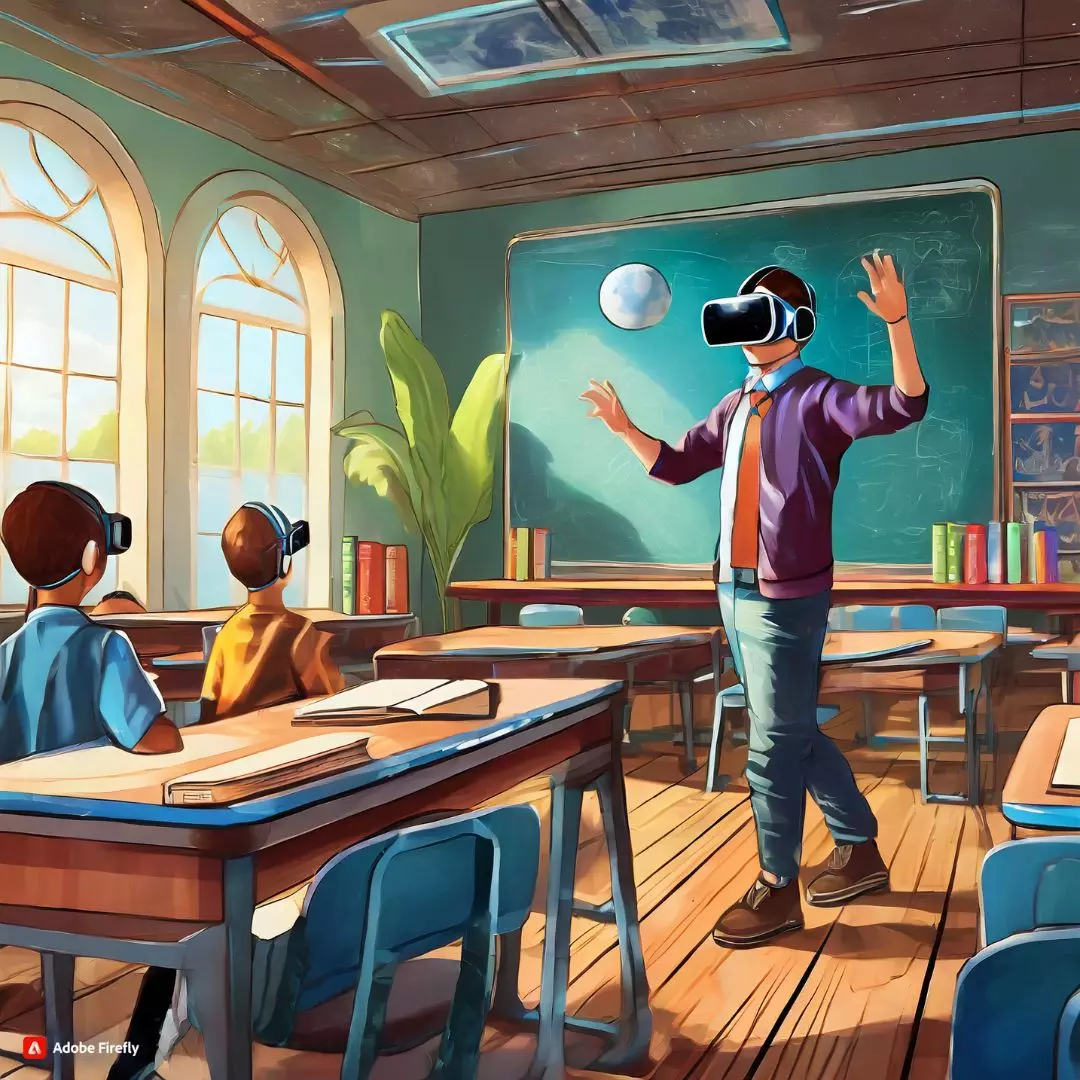Virtual reality (VR) technology has emerged as a transformative force in the education sector, offering immersive and interactive learning experiences for students across various age groups. Through the creation of simulated environments mirroring real-world situations, VR has become a powerful tool for engaging learners, enriching their understanding, and fostering critical thinking skills. This article delves into the impact of VR on education by exploring its benefits, innovative applications, and potential challenges.
The Educational Potential of Virtual Reality:
VR has revolutionized the learning landscape by transcending the constraints of traditional classrooms. Utilizing VR headsets, students can embark on virtual field trips to historical landmarks, explore ocean depths, or traverse the vastness of outer space. These experiences enable a profound understanding of subjects as students actively engage with content in a hands-on manner.
Moreover, VR promotes an inclusive learning environment catering to diverse learning styles and abilities. By incorporating multi-sensory elements like visuals, sounds, and touch, VR accommodates different learning preferences, enhancing information retention. The technology proves especially beneficial in vocational training, allowing students to practice complex procedures in a secure and controlled setting.
Innovative Applications of Virtual Reality in Education:
Beyond its conventional use in history and science classes, VR is finding innovative applications across a spectrum of subjects. In medical schools, students simulate surgeries, gaining hands-on experience without jeopardizing real patients. Architects and engineers utilize VR to visualize and manipulate intricate 3D models, nurturing creativity and problem-solving skills. Language learners immerse themselves in virtual environments to practice conversations with native speakers.
Furthermore, VR integration in special education curricula addresses the unique needs of students with disabilities. Inclusive virtual scenarios enable educators to deliver personalized and engaging lessons, accommodating individual learning requirements.
Challenges and the Future of VR in Education:
Despite its vast potential, adopting VR in education faces challenges such as the cost of equipment, compatibility issues, and the need for specialized teacher training. However, ongoing technological advancements and increased affordability are expected to diminish these barriers. Continuous research and collaborations between educators and tech developers are pivotal in refining and expanding the educational applications of VR.
In conclusion, virtual reality is revolutionizing education by providing immersive and interactive learning experiences. Whether transporting students to historical landmarks or enabling simulated surgeries, VR enhances engagement, understanding, and critical thinking skills. While challenges persist, the future of VR in education holds promise, with limitless possibilities for reshaping the way we learn.
Also Read: Esports In India: A Flourishing Industry Riding The Wave Of Pandemic & Innovation











